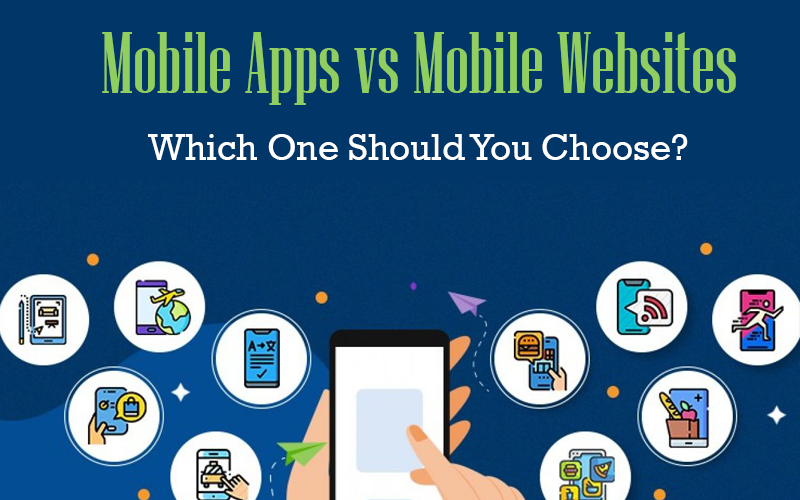How Do Free Apps Make Money? The Strategies Developers Don’t Want You to Know
1. Introduction to Free Apps and Monetization
Free apps have become an integral part of our daily lives. Whether it’s a gaming app that keeps us entertained, a productivity app that helps us stay organized, or a social media platform connecting us to loved ones, free apps dominate the digital space. But have you ever wondered, how do free apps make money? The truth is, while the apps are free for users, developers employ various strategies to generate revenue—some of which might surprise you.
What Are Free Apps?
Free apps are mobile or desktop applications available for download without an upfront cost. Users can access core features without payment, making these apps highly appealing to a broad audience.
Why Do Developers Offer Apps for Free?
The concept of offering something for free may seem counterintuitive in a revenue-driven world. However, free apps serve as a powerful tool for attracting a large user base, building brand loyalty, and increasing engagement—all of which are crucial for long-term monetization.
The Surprising Business Potential of Free Apps
With billions of active app users worldwide, the potential for revenue generation is immense. From leveraging user data to implementing innovative revenue models, free apps are far from being a charity offering.
2. The Economics Behind Free Apps
Understanding How Do Free Apps Make Money requires a deeper dive into their economic model. Developers capitalize on user behavior, data, and preferences to unlock multiple revenue streams.
How Free Apps Attract Users
Free apps lower the entry barrier for users, increasing downloads and engagement. The key lies in retaining these users through seamless experiences and valuable features.
The Role of User Data in the App Economy
User data is a goldmine. Many apps collect demographic, behavioral, and location data, which can be anonymized and sold to third parties or used for targeted advertising.
Understanding the Cost of “Free”
While users don’t pay in dollars, they often pay with their time (ads) or privacy (data sharing). Recognizing this exchange is essential to understanding How Do Free Apps Make Money.
3. Advertising Revenue Models in Free Apps
One of the most common ways free apps make money is through advertising. Developers integrate various ad formats within their apps to generate consistent revenue.
Banner Ads, Interstitial Ads, and Video Ads
- Banner Ads: Small, static ads displayed at the top or bottom of the app.
- Interstitial Ads: Full-screen ads shown at natural transition points, like between game levels.
- Video Ads: Reward-based or compulsory ads that users must watch to unlock features.
Programmatic Advertising Explained
Programmatic advertising automates the buying and selling of ad spaces within apps, ensuring advertisers reach the right audience at the right time.
Pros and Cons of Relying on Ads for Revenue
While ads provide a steady income, they can disrupt the user experience. Striking a balance is key to maintaining user satisfaction.
4. In-App Purchases and Microtransactions
In-app purchases (IAPs) have revolutionized How Do Free Apps Make Money, particularly in gaming and lifestyle apps.
What Are In-App Purchases?
IAPs allow users to buy additional features, content, or virtual goods within the app.
Types of Purchases
- Consumables: Items that users can buy repeatedly (e.g., game lives, tokens).
- Non-Consumables: One-time purchases for permanent features (e.g., removing ads).
- Subscriptions: Recurring payments for ongoing access to premium features.
Examples of Successful Apps Using This Strategy
Games like “Candy Crush” and productivity apps like “Evernote” thrive on this model, generating millions annually.
5. Freemium Model: The Gateway to Profitability
The freemium model blends free and premium offerings, enticing users to upgrade for advanced features.
Definition of the Freemium Model
Users can access basic features for free, but premium features require payment.
Why Users Upgrade to Premium Features
Features like ad-free experiences, enhanced functionality, or exclusive content drive users to opt for paid versions.
Popular Apps and Their Freemium Success Stories
Apps like “Spotify” and “Dropbox” have successfully leveraged this model, converting millions of free users into paying subscribers.
6. Subscriptions and Recurring Revenue Streams
Subscription-based apps have become a go-to strategy for consistent revenue generation.
How Subscription Models Work
Users pay a recurring fee (monthly or yearly) for continued access to premium features.
Apps That Have Mastered the Subscription Strategy
Apps like “Netflix” and “Adobe Creative Cloud” showcase the power of subscription models.
The Psychology Behind Recurring Payments
Subscriptions create a sense of commitment, ensuring users continue paying as long as they perceive value.
7. Data Monetization: The Controversial Goldmine
While lucrative, data monetization raises ethical questions about user privacy.
Collecting and Analyzing User Data
Apps collect data through permissions granted by users, such as location, preferences, and usage patterns.
Selling Data to Third Parties
Aggregated and anonymized data can be sold to marketers, researchers, or advertisers for a hefty price.
Privacy Concerns and Ethical Dilemmas
Transparent data policies and user consent are vital to maintaining trust and avoiding legal issues.
8. Affiliate Marketing and Partnerships
Affiliate marketing offers an indirect way for apps to earn revenue.
How Affiliate Marketing Works in Apps
Apps earn commissions by promoting third-party products or services through affiliate links.
Partnering With Brands to Drive Sales
Developers collaborate with brands to feature their products within the app ecosystem.
Real-Life Examples of Apps Using Affiliate Marketing
Fitness apps often promote workout gear, while e-commerce apps recommend products for affiliate earnings.
9. Sponsorships and Branding Opportunities
Sponsorships provide a win-win opportunity for developers and brands.
Collaborating With Sponsors
Developers partner with sponsors to showcase branded content or exclusive offers.
Branding Within Apps for Mutual Benefits
Integrating brand elements, such as logos or themed events, fosters engagement and revenue.
Evaluating the Effectiveness of Sponsorships
Metrics like impressions, clicks, and user feedback measure sponsorship success.
10. Crowdfunding and Donations
Crowdfunding platforms enable users to support app development directly.
Crowdfunding Campaigns for App Development
Developers present their ideas to potential backers on platforms like Kickstarter.
Leveraging Platforms Like Patreon and GoFundMe
Apps like “Signal” rely on donations to maintain a free, ad-free experience.
User Donations as a Revenue Source
Dedicated users may willingly contribute to support an app they love.
11. Promote Your App With App Marketing Plus
When it comes to ensuring your app stands out in a competitive market, professional app promotion is essential. App Marketing Plus is a premier app promotional agency dedicated to helping developers maximize their app’s visibility, user engagement, and revenue potential.
Services Offered by App Marketing Plus
- App Store Optimization (ASO): Tailored strategies to improve your app’s ranking on app stores.
- User Acquisition Campaigns: Data-driven marketing to attract high-quality users.
- Social Media Promotions: Engaging campaigns to increase app visibility.
- Monetization Consulting: Expert advice on How Do Free Apps Make Money effectively.
With a proven track record of success, App Marketing Plus ensures your app not only reaches your target audience but thrives in the competitive app ecosystem. For more details, visit App Marketing Plus.
Conclusion: The Future of Free App Monetization
Free apps have redefined how we consume digital services, proving that “free” doesn’t mean unprofitable. From advertising to in-app purchases, How Do Free Apps Make Money relies on a variety of innovative strategies. As the app ecosystem evolves, ethical considerations and user experience will play a pivotal role in shaping these monetization models.
For developers looking to take their app’s success to the next level, partnering with experts like App Marketing Plus can make all the difference. By combining professional strategies with cutting-edge technology, you can ensure your app’s long-term profitability and impact.
FAQs About How Do Free Apps Make Money
1. Why are so many apps free if they can make money?
Free apps are designed to attract a larger audience by removing the barrier of cost. Developers rely on strategies like in-app purchases, advertising, and partnerships to monetize while keeping the app accessible for everyone. It’s a win-win for users and creators!
2. Do free apps really generate significant revenue?
Absolutely! Free apps often make millions through smart monetization techniques. From ad revenue to premium subscriptions, they use diverse strategies to create sustainable income streams while offering valuable services.
3.How Do Free Apps Make Money with the help of Advertising?
Ads are a primary source of income for many free apps. Developers display targeted ads based on user behavior, ensuring brands reach their audience and app creators earn through impressions, clicks, or conversions.
4. Are in-app purchases the same as paying for an app?
Not quite. In-app purchases allow users to unlock extra features or content within the app, giving them control over their spending. This strategy ensures the app remains free for basic use while catering to users who want more.
5. Is it safe to use free apps that collect my data?
Most reputable apps prioritize user privacy and comply with data protection laws. They monetize data responsibly, often using anonymized insights for advertising. Always check an app’s privacy policy for clarity.
6. How can developers promote their free apps effectively?
Promotion is key for a free app’s success. Agencies like App Marketing Plus specialize in strategies like App Store Optimization, user acquisition, and social media campaigns to ensure apps stand out in a crowded market.


